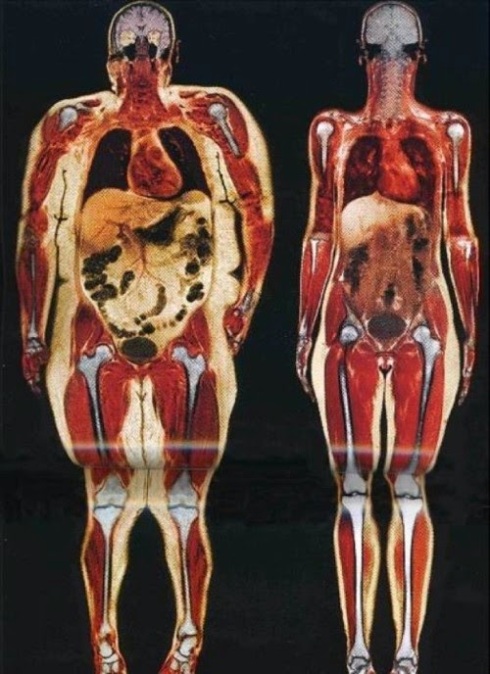
Continuing from my last post about energy; I was having a chat with a friend who told me that people burn through enough energy to power a lightbulb. Whaaaaaaat?! So, I googled & it’s true! I found this fascinating, so I’m sharing the basics here:
Think about a person who consumes 2000 calories in a day. Every calorie from food (kCal) is equal to 4200 joules of energy. Used over the course of a day (86,400 seconds), this person uses an average of 97.2 joules a second, meaning they have an average power of 97.2 watts. Certainly a person could juggle quite a few hamburgers, but in the end humans only average the power of a bright lightbulb.
There’s a lot more to it than that, but the above quote is the basic jist of it from a blog post on Bryn Mawr College’s website.
How is this relevant? Well, I don’t suppose it is per se, but a bulb is a tiny piece of glass with an even smaller element inside that heats up & a byproduct of that heat, is light. 2000 calories, to someone that is used to eating a lot less than that can seem HUGE, but if you compare it to a bulb, it really isn’t & the energy that you need in order to survive/function as an “average” human (I say average, as 2000 is about average) is just enough to power said bulb. *shrugs* I thought it was cool.
Anyhoo…………..
Continuing on this theme of energy; what happens if you don’t get enough calories? (your bulb would be a lot dimmer, that’s for sure!) Under eating is different to eating to a calorie deficit, one is a tried & trusted method to lose some weight, the other isn’t good for you. Your body is a smart, energy efficient machine – or it should be. Just like anything else that requires power, if it doesn’t get enough, it can’t do its job correctly. Effectively, your body slows down. Like load shedding (sharing power in an energy deprived country) your brain notices the calorie deprivation if it gets too low & will reduce your BMR to compensate – meaning that when you first chose to slash your calories to 1,000 per day it was fine, yeah…a little hungry, but continuation to do this will change your metabolic rate so that you become more efficient in using the calories, but that means any weight loss you initially noticed will slow down & stop.
The rate at which a body burns calories is determined by the amount of muscle that you have – more muscle, higher BMR. This is why men have a faster metabolism than women – as they usually have a higher muscle percentage than we do. Ultimately, muscle burns a lot more calories than fat so when we lose muscle, our metabolic rate drops and we burn fewer calories. In fact, research shows that the body loses a proportionately high amount of muscle with a very low calorie intake and this may considerably suppress metabolism by up to 45 percent….which in turn can see you with a much higher body fat percentage than you’d originally wanted.

These women are both the same height, but the one of the left weighs 110kg in comparison to the right who weighs 50kg
A calorie deficit is just that, a deficit – it shouldn’t be that low that you can’t concentrate, struggle with basic tasks, and have terrible sleep, skin, etc. halving your calories is a sure fire way to not get results – in order to get the result that you want, the first thing to do is to know your BMR:
BMR calculation for men (metric)
- 66.5 + ( 13.75 × weight in kg ) + ( 5.003 × height in cm ) – ( 6.755 × age in years )
BMR calculation for women (metric)
- 655.1 + ( 9.563 × weight in kg ) + ( 1.850 × height in cm ) – ( 4.676 × age in years )
Then, calculate your TDEE, you need to HONESTLY work out your activity levels:
- Little to no exercise – Daily calories needed = BMR x 1.2
- Light exercise (1–3 days per week) Daily calories needed = BMR x 1.375
- Moderate exercise (3–5 days per week) Daily calories needed = BMR x 1.55
- Heavy exercise (6–7 days per week) Daily calories needed = BMR x 1.725
- Very heavy exercise (twice per day, extra heavy workouts) Daily calories needed = BMR x 1.9
Once you have your figure you can reduce it by around 200 calories, in order to keep the calories in lower than the calories out, but not to a level that is gonna have a negative effect. As you lose weight & gain muscle, you will need to revisit this calculation a few times as when your weight changes, so does your BMR.

